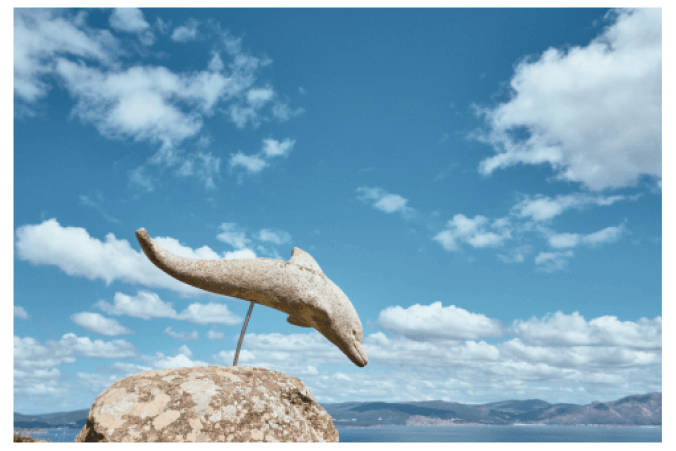INTERVIEWER:
Today we’re pleased to have on the show Alice Bussell from the Dolphin Conservation Trust. Tell us about the Trust, Alice.
ALICE:
Well, obviously its purpose is to protect dolphins in seas all around the world. It tries to raise people’s awareness of the problems these marine creatures are suffering because of pollution and other threats. It started ten years ago and it’s one of the fastest growing animal charities in the country – although it’s still fairly small compared with the big players in animal protection.
ALICE:
We are particularly proud of the work we do in education – last year we visited a huge number of schools in different parts of the country, going round to talk to children and young people aged from five to eighteen. In fact, about thirty-five per cent of our members are children. The charity uses its money to support campaigns – for example, for changes in fishing policy and so forth
ALICE:
It hopes soon to be able to employ its first full-time biologist – with dolphin expertise – to monitor populations. Of course, many people give their services on a voluntary basis and we now have volunteers working in observation, office work and other things.
ALICE:
I should also tell you about the award we won from the Charity Commission last year – for our work in education. Although it’s not meant an enormous amount of money for us, it has made our activities even more widely publicised and understood. In the long term it may not bring in extra members but we’re hoping it’ll have this effect.
INTERVIEWER:
Is it possible to see dolphins in UK waters?
ALICE:
Yes. In several locations. And we have a big project in the east part of Scotland. This has long been a haven for dolphins because it has very little shipping. However, that may be about to change soon because oil companies want to increase exploration there. We’re campaigning against this because, although there’ll be little pollution from oil, exploration creates a lot of underwater noise. It means the dolphins can’t rest and socialise.
ALICE:
This is how I became interested in dolphin conservation in the first place. I had never seen one and I hadn’t been particularly interested in them at school. Then I came across this story about a family of dolphins who had to leave their home in the Moray Firth because of the oil companies and about a child who campaigned to save them. I couldn’t put the book down – I was hooked.
INTERVIEWER:
I’m sure our listeners will want to find out what they can do to help. You mentioned the ‘Adopt a Dolphin’ scheme. Can you tell us about that?
ALICE:
Of course! People can choose one of our dolphins to sponsor. They receive a picture of it and news updates. I’d like to tell you about four which are currently being adopted by our members: Moondancer, Echo, Kiwi and Samson.
ALICE:
Unfortunately, Echo is being rather elusive this year and hasn’t yet been sighted by our observers but we remain optimistic that he’ll be out there soon. All the others have been out in force – Samson and Moondancer are often photographed together but it is Kiwi who’s our real ‘character’ as she seems to love coming up close for the cameras and we’ve captured her on film hundreds of times
ALICE:
They all have their own personalities – Moondancer is very elegant and curves out and into the water very smoothly, whereas Samson has a lot of energy – he’s always leaping out of the water with great vigour. You’d probably expect him to be the youngest – he’s not quite – that’s Kiwi – but Samson’s the latest of our dolphins to be chosen for the scheme
ALICE:
Kiwi makes a lot of noise so we can often pick her out straightaway. Echo and Moondancer are noisy too, but Moondancer’s easy to find because she has a particularly large fin on her back, which makes her easy to identify. So, yes, they’re all very different …
INTERVIEWER:
Well, they sound a fascinating group …
 Khi bạn nghe "It started ten years ago and it’s one of the fastest growing animal charities in the country — although it’s still fairly small compared with the big players in animal protection."
Khi bạn nghe "It started ten years ago and it’s one of the fastest growing animal charities in the country — although it’s still fairly small compared with the big players in animal protection."  Sau đó bạn nghe " In fact, about thirty-five per cent of our members are children."
Sau đó bạn nghe " In fact, about thirty-five per cent of our members are children." 

